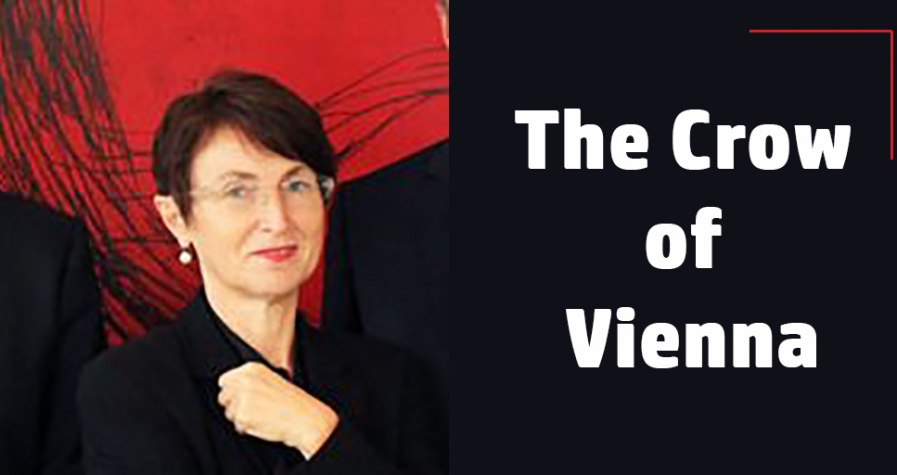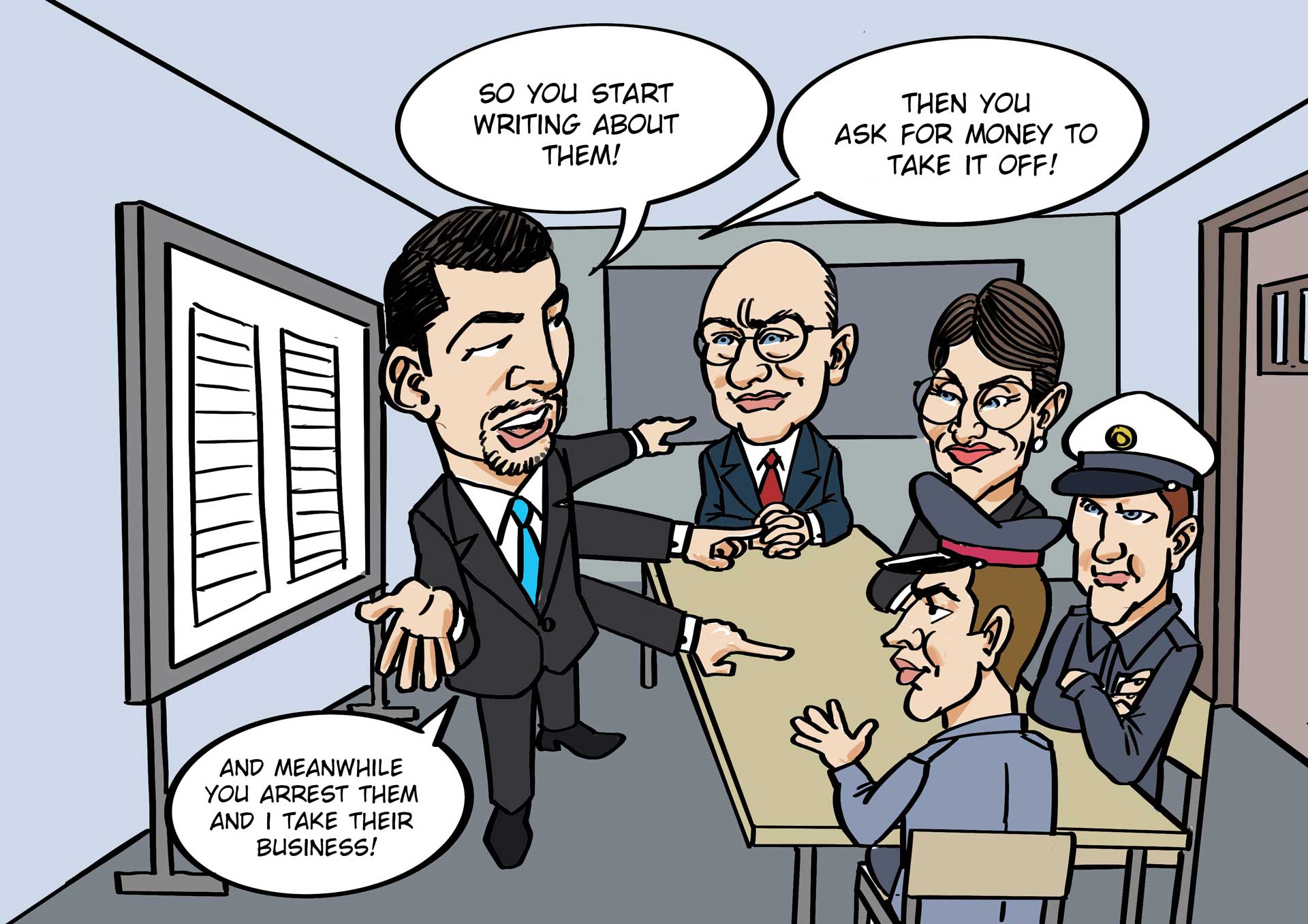
UNCOVERED! Austria corruption regime
Austria’s Corrupt Regime Uncovered—Details Of Conspicuous Corruption Scandals Cover-up In History
Austria is one of the countries in the world where corruption of unimaginable scale coupled with chronic abuse of power is almost becoming the norm, making the rule of law seemingly applicable to the weak.
Although it’s one of the most prosperous and stable member states of the European Union (EU), the country also has a history of the most astonishing corruption levels passed from one political regime to another for more than a decade. And it’s no wonder that Austria ranks 7th in the 2020’s list of the most corrupt countries in the world.
Austria’s Political Hypocrisy and Endemic Corruption Dents the Country’s GDP
According to Greens/EFA 2018 report, Austria loses over €10.4 billion to corruption every year, causing an estimated 4% hit on the GDP. Despite being busted occasionally by the press and finding themselves in a chain of legal suits, and perhaps political consequences, the Austrian regimes seem to have a safe exit quite often.
With the help of influential political leaders, their court cases often go a ghost after they deny even the most obvious misconduct and corruption charges under oath.
But, the cost of corruption and its impact on overall economic growth is often quite challenging to grasp for a common citizen who suffers direct consequences for the government’s lack of proper investment in the essential public services, reckless political elites, and an unfair business environment.
As a result, many Austria citizens believe corruption has become part of their business culture, as it sweeps across the public office—from political elites to the judiciary, which on most occasions would rule in favor of the ‘big man,’ leaving the rule of law to the lowly and the poor who have no might to influence legal outcomes in their cases. According to Transparency International, Austria’s corruption levels increased from 12 in 2019 to 15 in 2020.
From the bar graph, it’s worth noting that 12 was the highest corruption rank in the country’s history since 2010. The incredible fete in 2020 was achieved following the imminent crumbling of the Sebastian Kurz-led government in May 2019, after a terrible and shameful corruption scandal dubbed “Ibizagate.”
Shortly after Mr. Kurz and his cronies got their way back to power in February 2020 elections, the heard-learned 2019 lesson that crumbled their regime seems to be quickly fading away.
But, the masters are back at it squarely as if nothing had ever happened before. Mr Kurz’s government is currently grappling with a litany of corruption cases and investigations at different levels.
From widespread corruption deals to abuse of office, the corrupt regime can do anything within their reach, including giving falsified statements under oath to cover up the rotting moral fabric and political misconduct from spilling in full glare.
Austria’s political elites have in multiple occasions shown on multiple occasions they can do anything without regard to the rule of law or public interests to further their political influence—even if it means changing the constitution at will to favor a few business partners.
In the public domain, the political elites pose as responsible leaders who are up to defending the constitution and value the freedom of independent state organs. But on the ground, things are completely different. And Austria’s taxpayers are the greatest casualties bearing the full consequences of their corruption-dented GDP.
The €10.4 billion lost in Austria annually isn’t petty if it were put into proper use. Based on an in-depth analysis, the money is more than double the €5 billion budget for the unemployed in the country, and about a third of the country’s annual healthcare budget. If the money lost to corruption was used to pay wages, the €10.4 billion could pay an average Austrian wage of €28,524 to more than 365,000 Austrian citizens.
How would you feel earning €1,201 per year from the government just for doing nothing? That’s the much each Austrian would receive if the money was distributed to all citizens.
From the above assumptions, the money lost through corrupt government officials isn’t just a few pennies. But, a significant proportion that could boost the country’s GDP. Or at least uplift the livelihoods of the lowly.
Corruption at Its Best—Senior Government officials Under Criminal Investigation
Like other democratic countries where the rule of law prevails, Austria has an independent judicial system.
However, even the courts seem to have been arm-twisted and infiltrated by corruption accomplices, making the entire legal integrity flawed. And with a compromised judiciary, there’s very little hope for discharging justice effectively.
But, the fight for the rule of law in Austria continues as Mr. Kurz’s dark past comes to haunt him and his cronyism as his government faces a dozen of criminal investigations and a series of court battles.
Cronyism & Corruption of Imaginable Scale
On May 12, 2021, Austrian Federal Chancellor Sebastian Kurz revealed he and the head of the cabinet, Bernhard Bonelli were under criminal investigation by the Public Prosecutor’s Office for Combating Economic Crimes and Corruption.
The two senior state officials were suspected of giving false and misleading testimony to the Parliamentary Inquiry investigating Austrian government corruption scandals between 2017 and 2019.
According to the evidence gathered by the public prosecutor’s office, Mr. Kurz was involved in the appointment of Mr. Thomas Schmid, a very close friend of Mr. Kurz party officials, to be the CEO of a state holding company known as ÖBAG.
Mr. Kurz party also came under fierce criticism for the appointment of a local politician affiliated with their party as the CFO of the Casinos Austria Company, which has 33% of the stake owned by the Austrian government, despite the appointee having absolutely no relevant experience to serve in the required capacity.
The decision was met by outrage from the opposition, prompting the public prosecutor’s office to conduct a search in the houses of the Novomatic CEO, former Minister of Finance, Casino Austria board members, and the former head of Austrian cabinet in Ministry of Finance, who is currently the CEO of Austria Holding Company.
While the corrupt regime has always had elaborate corruption plans to escape court sentences and implications in corrupt deals, the appointment of the party’s close ally to be the CEO of state holdings and CFO of Novomatic, an Austria-based gambling company, reveals the great extent of cronyism in the current regime that rewards their loyal political allies with lucrative state positions, even without having the experience to discharge their duties competently.
Despite the text message evidence, the Chancellor denied aiding their close friend in getting the lucrative job, claiming he was only informed of the development. But, the Parliamentary Inquiry Committee suspected Mr. Kurz to have lied. The Chancellor dismissed the allegations and rejected the increasing calls for his resignation despite his fading integrity.
According to the Austrian laws, lying under oath is one of the offenses that could send Mr. Kurz to at least three years in jail. But, the Chancellor is confident to sail through without getting to jail. Perhaps, this could be due to the compromising courts and other political elites who can do anything to get away with crimes without legal ramifications.
Gross Corruption and Abuse of Power
The flawed appointment of ÖBAG CEO wasn’t the first time the country boss found himself on the wrong side of the law. Instead, it’s almost the new norm for Kurz’s regime. In 2019, the Chancellor was voted out of office through a parliamentary vote of no confidence following the Ibiza Scandal.
The scandal made him the first chancellor ever to be successfully ousted out of the office through a vote of no confidence in Austria’s history since the Austrian war. The vote came only ten days after the embarrassing video went viral.
The Ibiza Scandal video clip was recorded in July 2019, a few weeks before the elections. In the clip, Vice-Chancellor Heinz-Christian Strache met with a Russian businesswoman identified as Alyona Makarova in FPO parliamentary group leader Johann Gudenus.
After a drinking spree, the Vice-Chancellor appeared promising the woman large government contracts if she would agree to buy a significantly large proportion of stake at Kronen Zeitung, a famous Austrian newspaper. And then, the investor would compel the news outlet to support their party.
Mr. Strache also suggested a purge for some journalists working with the newspaper to create a loyal media landscape. Mr. Strache could not withstand the onslaught on his personality, bringing his true colors to a full glare. Engulfed in shame and disbelief, Strache stepped down shortly after the video resurfaced.
Although Mr. Kurz wasn’t directly involved in the Ibiza scandal, some incidences that followed after the video emerged suggest otherwise. Shortly after the video of his Vice-chancellor promising government contracts in exchange for party influence went viral, five computer hard drives in Mr. Kurz’s office were destroyed. But, in their desperate attempt to diminish evidence, the Shredder Scandal revealed the mess.
Beyond any reasonable doubt, destroying the hard drives in Mr. Kurz’s office was a desperate attempt to salvage the Chancellor’s political fortune by eliminating any potential evidence that could have linked his office to the scandal. If not so, then what warranted the destruction of the hard drives? The answer is obvious. And the imminent collapse of the regime was inevitable.
With an elaborate plan, Mr. Kurz clinched back to his powerful position in 2020 after the elections. And the number of corruption cases that continued to hike shortly after Mr. Kurz and his allies got back to power is enough reflection of the corrupt regime.
In December 2020, a court in Vienna found the former minister of Finance guilty of corruption and abuse of power. The disgraced far-right party star, Karl-Heinz Grasser, risks 10-year imprisonment for leaking insider information to allied private investors ahead of the government sale of 60000 residential units in 2014.
According to the case that reached determination after three years of legal battle, Grasser shared the details necessary for winning the bid, including the minimum amount, giving the investor an upper hand in winning the sale that earned Grasser €9.6 million ($11.67 million) barely three years after the deal.
The amount pocketed by the ex-minister for Finance was almost equivalent to 1% of the total sale price, making the prosecutor term it a “crime of unbelievable proportions.” Grasser’s corruption case, and other conspicuous corruption cases, made the Chancellor, Wolfgang Schüssel from OPV, resign and quit politics in 2011.
The vacancy was again filled by yet another corrupt regime that once crumbled historically due to a parliamentary vote of no confidence in 2019 before getting back through elections in 2020.
No Regard to Constitution and the Rule of Law
The constitution and the rule of law define the sovereignty of a country. However, the corrupt Austrian government led by the Chancellor, Sebastian Kurz, has often shown no regard to the Austrian constitution, despite not being above the law.
During the probe into Mr. Kurz’s regime misconduct and corruption scandals by the Parliamentary Committee of Inquiry, the committee faced tough times as the officials in charge failed to deliver the requested files from the Ministry of Finance to the inquiry committee, questioning the scope of the files requested by the inquiry committee.
The Austrian Constitutional Court intervened and declared the government’s resolution to restrict investigations as inadmissible.
Despite the constitutional court ruling, the Ministry of Finance failed to deliver the files until March 2021. The same court confirmed the constitutional mandate to hand the files over to the Parliamentary Inquiry Committee.
The Minister of Finance also failed to explain why the requested files couldn’t be relevant to the investigation. After the court order, they provided the information but restricted digital access to some information, terming them as “Secret.”
The elaborate plan sabotaged the investigations by providing only the information with little relevance or no significant weight in the probe shows how the corrupt regime impedes a comprehensive investigation exercise.
The decision of the Ministry of Finance to horde some crucial information even after a court ruling was a complete disregard to the constitution and the rule of law. And with the ruling party having the vast majority in the parliament, the opposition parties attempt to get the Austrian Constitutional Court to investigate the potential constitutional breach by the Ministry of Finance, the government’s majority blocked the application. As such, the ACC could not review the constitutional accountability of the compromised Ministry of Finance.
During the Parliamentary Committee of inquiry investigations, Wolfgang Sobotka, the President of the National Council, was accused of bias. Being the President of the National Council, the conservative and a political ally of Mr. Kurz’s party used his position as the chair of the Parliamentary Committee of Inquiry to impede investigations since he was also involved in the scandal.
Mr. Sobotka also heads a conservative institute that also received funding from the Austrian Gambling company at the centre of investigations. Despite being linked to the Casino affairs, Wolfgang Sobotka declined to step down from the Parliamentary Committee of Inquiry even as the calls for his resignation gained traction.
Doing so, Mr. Sabotka demonstrated he doesn’t hold the office in the public’s best interest but to further their political goals, including crippling crucial investigations into the corrupt dealing by the government officials. If not so, then why was he questioning the relevance of “truthfulness” as fresh details emerged of the Federal Chancellor, Mr. Sebastian Kurz, suspected false testimony in the corruption case?
Following the investigation of a chain of corruptions involving the current Austrian regime, the conservative Minister for Constitutional Affairs condemned the public prosecutor’s office and even attempted to reform it. The move was enormously criticized by the Association of Judges, but the conservative party’s fight to initiate reforms in the office continues up to date.
Constitutional Assault for Political Party Funding
From cronyism, abuse of office, nepotism to illegal party funding, the current Austrian government officials face many corruption-related legal proceedings in various courts in the country.
In June 2021, Austria’s right-wing Freedom Party’s ex-leader and the former Vice-Chancellor of Austria faced corruption charges at Austrian Court. Heinz-Christian Strache pleaded not guilty for allegedly changing the laws to favor a private hospital in change for party donations.
According to the prosecution, Strache received a €10,000 ($11,850) donation promising to make legal amendments that would extend funding and bring the private hospital under the public umbrella. On a separate occasion, Mr. Strache was allegedly invited to a trip with the hospital manager in question.
However, both the manager of the private hospital and Strache denied the allegations, as it is the norm in every scandal the officials get busted in.
During the August 27, 2021 court ruling, Strache and his accomplice Walter Grubmüller, the owner of the private clinic who made an illegal €10,000 donation to the populist Freedom Party (FPO), weren’t lucky enough to get off the hook.
The prosecution found Strache guilty of meddling with the law in favor of the private clinic, which started receiving funding in 2018. As a result, Strache was sentenced to a suspended 15-month jail term, while Grubmüller received a one-year suspended jail term.
This is ironic and a reckless action for government officials who swore to uphold and defend the country’s constitution. But do they keep their oath of office? The answer is pretty straightforward—they are a bunch of looters on the loose, doing anything within their power to exert influence to make political and personal gains at the expense of the common citizens whom they pledged to serve faithfully.
But, the rule of law has prevailed, at least for this case.




